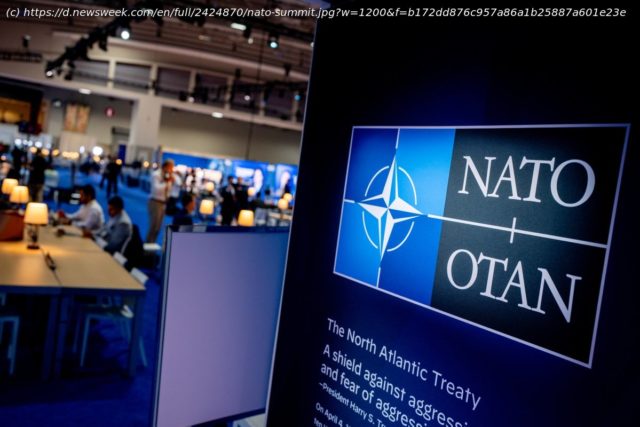A change of administration poses questions for NATO including spending commitments, the prospect of the United States exiting the pact, and whether Ukraine could ever become a member.
Vladimir Putin’s invasion of Ukraine heralded the unwelcome return of war in mainland Europe, once again bringing NATO’s role in global stability and security into sharp focus.
As the alliance marks its 75th anniversary with a summit in Washington this week, member states will be ever-mindful that it was formed in the aftermath of the Second World War.
Former president Donald Trump, the presumptive Republican nominee for this year’s Presidential Election, has been highly critical of NATO in the past and the prospect of his reelection later this year presents an element of uncertainty for the bloc.Spending Commitments
In February Trump said that were Russia were to invade a Nato country that was not meeting its minimum spending targets, he would “encourage them to do whatever the hell they want.You got to pay your bills.”
His choice of words was widely condemned as reckless but many allies share his frustration with wealthy countries such as Germany, which has historically fallen short of the agreed spending targets while enjoying the benefits of collective security.
Defence experts told Newsweek that the sentiment behind Trump’s rhetoric can be viewed as a continuation of previous administrations’ stances.
“The real change began before the Trump presidency (at the 2014 Wales summit under President Obama) and this year, 23 of the 32 states are meeting or exceeding their 2 percent of GDP commitments”, said Patricia Lewis, Director of the International Security Programme at Chatham House, a British international affairs think tank.
“The standouts at less than 2 percent include Canada, Italy, Spain and Belgium. However a number of NATO members contribute significantly more”, she added.
“In a general sense, and from an American perspective, Trump’s criticisms are fair. In fact, US presidents have a long history of criticizing NATO members for not pulling their weight on military spending. [.] Obama referred to NATO members as ‘free riders’ who didn’t pay their fair share”, said Rubrik Biegon, lecturer of international relations at the University of Kent.






